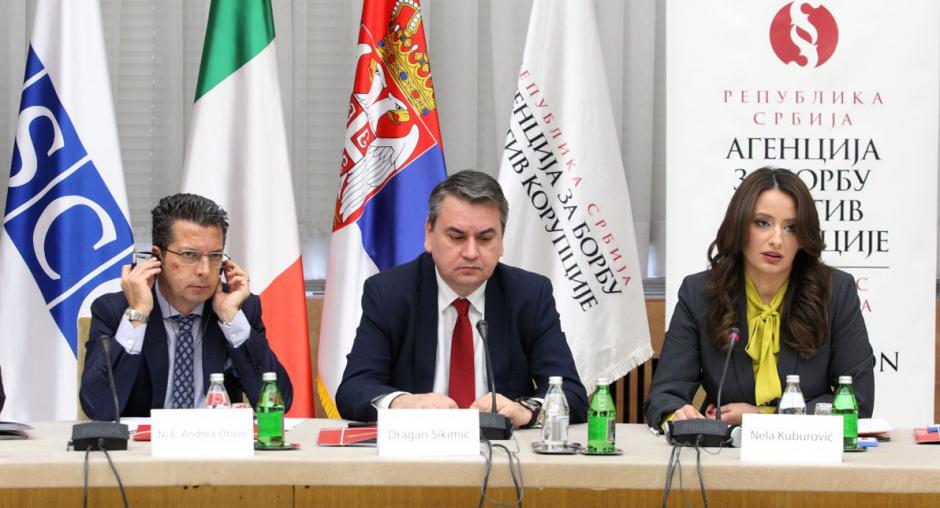OSCE Mission to Serbia, Italian Embassy and Anti-Corruption Agency mark International Anti-Corruption Day

More than 100 high-level officials from South-Eastern Europe dealing with preventing corruption, together with senior representatives of Serbian institutions, civil society organizations and the media gathered for a regional conference in Belgrade on 13 and 14 December 2018 to mark International Anti-Corruption Day.
The conference, Implementation of Corruption Prevention Mechanisms, was jointly organized by the OSCE Mission to Serbia and the country’s Anti-Corruption Agency, with the support of Italy’s Ministry of Foreign Affairs and International Co-operation.
The discussion focused on the state of play, challenges and determinants to more effectively prevent corruption, having recognized that transparent and accountable institutions reinforce public trust and are some of the key components of good governance.“Corruption is a challenge affecting institutions and civil societies alike: that is why joining forces at both national and international level is essential to address it effectively. A key role is played by the OSCE, fostering dialogue and exchange of best practices among participating States, and assisting them in developing and implementing effective anti-corruption policies and measures,” said Professor Paola Severino, Special Representative of the OSCE Chairperson-in-Office for Combating Corruption. “In this scenario, education can make the difference in raising awareness of the risks of corruption, as well as in promoting integrity, instilling the basic principle of legality and shaping civic and moral attitudes in individuals from a very early age.”
Ambassador Andrea Orizio, Head of the OSCE Mission to Serbia, said: “In the spirit of partnership and encouraging full local ownership of accomplishments, the OSCE Mission to Serbia has been assisting the host country and its institutions, since the very beginning, by providing sound expertise and fostering a regional approach as indispensable in the fight against corruption. We stand ready to further expand our co-operation with the anti-corruption bodies and all relevant stakeholders in this field in Serbia.”
Italy’s Ambassador to Serbia, Carlo Lo Cascio, added: “One of the most important legacies of the 2017 Trieste Summit is strengthening the independence of the anti-corruption institutions of the Western Balkan region. Fighting corruption is not only instrumental to the process of EU accession, but it is an objective per se. It helps Western Balkans partners in shaping a better business environment, stimulating foreign investment, and developing social cohesion and the rule of law. We will keep co-operating with Serbia in this field, also with the support of Professor Severino.”
Dragan Sikimic, Director of the Anti-Corruption Agency, said: “Strengthening the integrity on which all corruption prevention mechanisms are basically focused represents one of the most effective strategic and sustainable responses to corruption. In that regard, the Anti-Corruption Agency is committed to a whole-of-society approach, given that corruption cannot be prevented without the proper inclusion of other institutions, international partners, media, civil society organizations and citizens.”
Participants at the conference included officials from Albania, Bosnia and Herzegovina, Croatia, Italy, the former Yugoslav Republic of Macedonia, Montenegro, Romania, Slovakia and Slovenia.
The conference is a part of the OSCE Mission to Serbia’s wider commitments to support anti-corruption efforts in the country.
International Anti-Corruption Day is held annually on 9 December and marks the anniversary of the entry into force of the UN Anti-Corruption Convention in December 2005.
